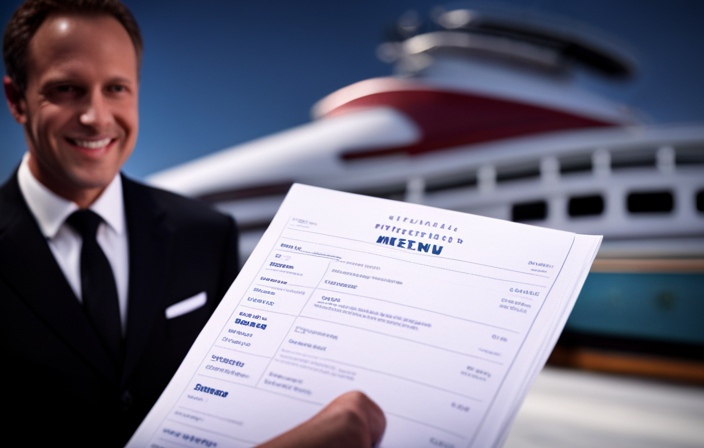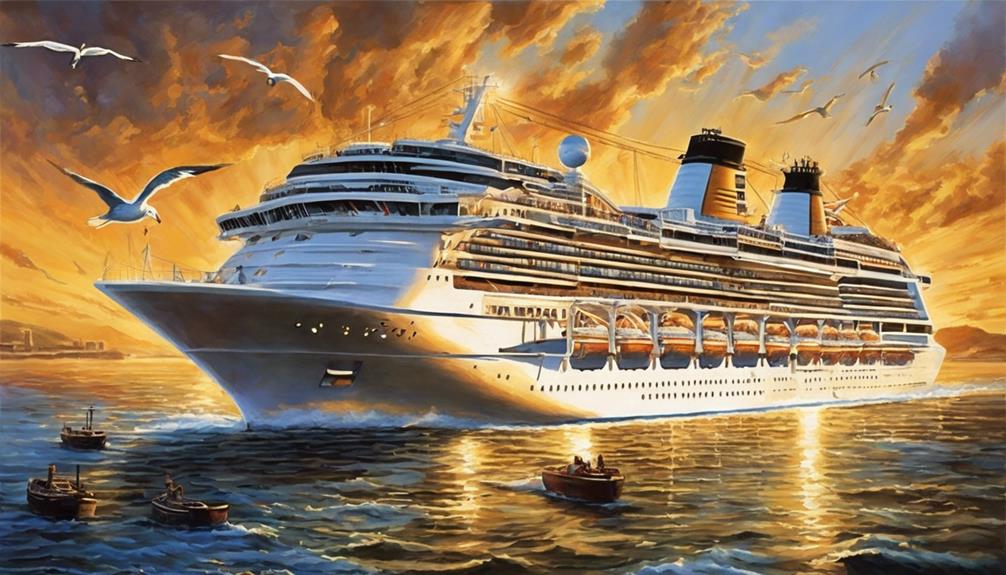As the famous saying goes, “knowledge is power,” and this holds especially true when it comes to towing a trailer, as knowing how cruise control functions is essential. Hi there, I’m here to enlighten you on this subject and give you all the necessary details.
In this article, we’ll explore whether or not you can use cruise control when pulling a trailer. We’ll delve into the factors you should consider, the potential risks involved, and the recommendations provided by manufacturers and vehicle specifications.
Additionally, we’ll discuss alternative options to cruise control for towing and the legal requirements and regulations you should be aware of.
Drawing from personal experience and expert advice, we’ll debunk common misconceptions and myths surrounding towing with cruise control. By the end, you’ll have a comprehensive understanding of whether or not it’s safe and advisable to use cruise control while towing a trailer.
So, let’s dive in and equip ourselves with the knowledge needed to make informed decisions on the road.
Key Takeaways
- Cruise control can be used when pulling a trailer, but it is important to consider the limitations and risks associated with it.
- Manufacturer recommendations and vehicle specifications should be consulted to determine the maximum towing capacity and compatibility with cruise control.
- Specific cruise control settings for towing, such as tow/haul mode, may be recommended to optimize performance and reduce strain on the vehicle.
- Compliance with legal requirements and regulations for towing, including obtaining the appropriate license and adhering to speed limits, is essential for a safe towing experience.
Understanding the Functionality of Cruise Control
Understanding the functionality of cruise control is essential when considering its use while towing a trailer. Cruise control is a feature that allows drivers to set and maintain a specific speed without having to continuously press the accelerator pedal. This can be particularly beneficial during long journeys, as it reduces driver fatigue and improves fuel efficiency. However, it’s crucial to remember that cruise control is not a substitute for attentive driving. Drivers should always remain alert and be prepared to take control of the vehicle if necessary.
When using cruise control while towing a trailer, there are several factors to consider. Firstly, it’s important to understand the specific capabilities and limitations of your vehicle. Some vehicles may have restrictions on using cruise control while towing a trailer, so it’s essential to consult the owner’s manual or contact the manufacturer for guidance.
Additionally, it’s crucial to be aware of the potential dangers associated with using cruise control while towing. For example, if you encounter a steep downhill, the cruise control may not be able to apply the brakes adequately, which can lead to a dangerous situation. Therefore, it’s essential to monitor the road conditions and be prepared to manually control the speed and braking when necessary.
In conclusion, while cruise control can offer convenience and ease during long journeys, it’s important to understand its functionality and limitations when towing a trailer. By remaining attentive and being prepared to take control if needed, drivers can safely utilize cruise control while pulling a trailer.
Factors to Consider When Towing a Trailer
Before hitting the road with a trailer in tow, there are several essential factors you should take into account. It is important to consider the manufacturer recommendations and legal requirements when towing a trailer. These guidelines are in place to ensure your safety and the safety of others on the road. The manufacturer recommendations will provide valuable information on the maximum weight capacity, towing capabilities, and any specific precautions to take when using cruise control. Additionally, it is crucial to comply with legal requirements such as obtaining the appropriate license and adhering to speed limits. To help visualize these considerations, here is a table outlining some key factors to keep in mind:
| Manufacturer Recommendations | Legal Requirements |
|---|---|
| Maximum weight capacity | Appropriate license |
| Towing capabilities | Speed limits |
| Specific precautions when using cruise control |
Considering these factors will ensure a smooth and safe towing experience. However, it is important to be aware of the potential risks of using cruise control while towing, as we will explore in the next section.
Potential Risks of Using Cruise Control While Towing
One potential risk of using cruise control while towing is the possibility of reduced vehicle control and response time. When towing a trailer, it is important to have full control over your vehicle at all times. Using cruise control can limit your ability to quickly react to sudden changes in road conditions or traffic situations.
For example, if you need to quickly slow down or accelerate to avoid an obstacle, the delay in disengaging the cruise control can be dangerous. Additionally, towing puts extra strain on the vehicle’s engine, transmission, and brakes, which can lead to overheating or increased wear and tear.
It is crucial to take precautions and be fully aware of the risks involved in using cruise control while towing.
Moving on to the next section, it is important to consider the manufacturer recommendations and vehicle specifications for safe towing practices.
Manufacturer Recommendations and Vehicle Specifications
When it comes to using cruise control while towing, it’s important to consult the Owner’s Manual for specific manufacturer recommendations.
The manual will provide valuable information on the maximum towing capacity of your vehicle and its compatibility with cruise control.
Additionally, it may include specific cruise control settings that are recommended for towing, ensuring a safe and smooth experience on the road.
Consult the Owner’s Manual
To maximize safety, always consult the owner’s manual before using cruise control while pulling a trailer.
The owner’s manual is an essential resource that provides important information about the specific capabilities and limitations of your vehicle’s cruise control system. It outlines the recommended procedures for using cruise control with a trailer and highlights any potential issues or concerns to be aware of.
Additionally, the owner’s manual will provide troubleshooting tips for common cruise control issues that you may encounter while towing a trailer. By following the guidelines and recommendations outlined in the owner’s manual, you can ensure that you are using cruise control safely and effectively while towing.
Moving on to the next section about maximum towing capacity and compatibility, it is important to understand the capabilities of your vehicle and trailer combination.
Maximum Towing Capacity and Compatibility
Before hitting the road, it’s crucial to know your vehicle’s maximum towing capacity and ensure compatibility with your trailer. Think of it like a well-matched dance partner gliding effortlessly across the floor. Understanding the maximum weight limits and trailer hitch compatibility is essential to ensure a safe and smooth towing experience. Here are four key points to consider:
-
Maximum Towing Capacity: Check your vehicle’s manual or consult the manufacturer to determine the maximum weight your vehicle can safely tow. Exceeding this limit can lead to damage, accidents, and even loss of control.
-
Trailer Hitch Compatibility: Ensure that your vehicle’s hitch is compatible with your trailer’s hitch receiver. Matching the correct size and class is vital to prevent any accidents or instability on the road.
-
Weight Distribution: Properly distributing the weight of your trailer is crucial for safe towing. Ensure that the weight is evenly distributed across the trailer and that the trailer tongue weight falls within the recommended range.
-
Brake Control: Consider installing a trailer brake controller to improve braking performance and control when towing heavy loads.
Understanding these factors will help you make informed decisions when towing. Now, let’s delve into specific cruise control settings for towing without compromising safety.
Specific Cruise Control Settings for Towing
When it comes to towing, it’s important to know the specific cruise control features that are available and how they can benefit you.
Many vehicles equipped with cruise control have a dedicated setting for towing, which adjusts the system to better accommodate the added weight and strain. This setting may include features such as a tow/haul mode, which modifies shift points for smoother acceleration and deceleration.
Using cruise control while towing offers several benefits. It helps maintain a consistent speed, reducing the risk of speeding or inadvertently slowing down. This can be particularly helpful on long trips, where fatigue can set in. Additionally, using cruise control can improve fuel efficiency, as it helps to optimize engine performance.
However, while cruise control can be advantageous, it’s important to be aware of its limitations and consider alternatives, which we will explore in the next section.
Alternatives to Cruise Control for Towing
When it comes to towing, there are alternative options to using cruise control.
One option is manual speed control, where the driver is responsible for maintaining a consistent speed by adjusting the throttle.
Another option is using an adaptive cruise control system specifically designed for towing, which can automatically adjust the vehicle’s speed based on the weight and movement of the trailer.
Lastly, many vehicles equipped with a tow package offer a tow/haul mode, which adjusts the transmission shift points and throttle response to optimize performance while towing.
Manual Speed Control
When towing a trailer, it’s crucial to have full control over the speed. This is where manual speed control comes in, making it the best option. With manual speed control, you have the ability to adjust your speed according to the changing road conditions, traffic, and the weight of your trailer. This ensures a safer and more stable towing experience.
Here are three reasons why manual speed control is preferable when pulling a trailer:
-
Increased responsiveness: With manual speed control, you can quickly adapt to any unexpected situations on the road, such as sudden braking or avoiding obstacles.
-
Better control on inclines: Towing a trailer uphill can be challenging, but manual speed control allows you to choose the appropriate gear and maintain a steady speed, preventing your vehicle from straining or losing power.
-
Reduced risk of trailer sway: By manually controlling your speed, you can avoid sudden changes in velocity that can lead to trailer sway, maintaining a smooth and steady motion.
Transitioning to the subsequent section about adaptive cruise control systems, it’s important to consider the potential benefits and limitations of this technology.
Adaptive Cruise Control Systems
To optimize your towing experience, consider the advantages and drawbacks of incorporating adaptive cruise control systems into your setup.
Adaptive cruise control benefits include:
- Improved convenience and reduced fatigue on long trips.
- Ability to set a desired speed and maintain a safe following distance from the vehicle ahead.
- Automatic adjustment of speed when needed.
This can be especially helpful when towing a trailer, as it:
- Helps maintain a steady speed.
- Reduces the need for constant speed adjustments.
However, there are limitations to adaptive cruise control when pulling a trailer. The system may not be able to detect smaller vehicles or objects in front of the trailer, potentially leading to collisions. It’s important to stay alert and be prepared to take control of the vehicle when necessary.
Transitioning into the subsequent section about using tow/haul mode, it’s essential to understand the benefits and considerations of this feature.
Using Tow/Haul Mode
Now that we have discussed adaptive cruise control systems, let’s move on to another important feature when towing a trailer: using tow/haul mode.
This mode is specifically designed to optimize your vehicle’s performance while towing heavy loads.
Tow/haul mode provides several benefits that make towing safer and easier. Firstly, it adjusts the transmission shift points to allow for more power when accelerating and better engine braking when decelerating, which helps maintain control and stability. Additionally, it increases the responsiveness of the throttle, making it easier to maintain a consistent speed while towing.
Using tow/haul mode is especially advantageous compared to regular mode when towing uphill or downhill, as it helps prevent excessive shifting and reduces strain on the transmission.
Now that we understand the benefits of tow/haul mode, let’s move on to the next section where we will explore some helpful tips for safe towing, whether using cruise control or not.
Tips for Safe Towing with or without Cruise Control
Make sure you’re prepared for a smooth towing experience by following these tips for safe towing with or without cruise control.
-
Safe Braking: When towing a trailer, it’s crucial to adjust your braking technique. Allow for more stopping distance and apply the brakes gradually to avoid skidding or jackknifing.
-
Weight Distribution: Proper weight distribution is essential to maintain control of your vehicle and trailer. Make sure the load is evenly distributed and properly secured to prevent sway or fishtailing.
-
Speed Control: Whether using cruise control or not, it’s important to maintain a safe and consistent speed while towing. Avoid excessive speed, especially when going downhill, to prevent loss of control.
-
Stay Alert: Towing requires extra attention and focus. Be aware of your surroundings, anticipate potential hazards, and adjust your driving accordingly.
To ensure you’re towing legally, it’s important to be aware of the specific legal requirements and regulations for towing.
Legal Requirements and Regulations for Towing
When it comes to towing, there are a few legal requirements and regulations that you need to be aware of.
First, trailer braking systems are essential for safe towing, so make sure your trailer is equipped with one that meets the legal requirements.
Secondly, licensing and certification may be necessary depending on the weight and type of trailer you are towing.
Lastly, it’s important to familiarize yourself with local towing laws and restrictions, as they can vary from place to place.
Trailer Braking Systems
Imagine effortlessly gliding down the highway with your trailer in tow, as your trailer braking system allows you to confidently engage cruise control. When it comes to trailer braking systems, there are two main types: electric and hydraulic brakes. Electric brake controllers are commonly used for smaller trailers and are activated when the brake pedal is pressed in the towing vehicle. On the other hand, hydraulic brakes use a fluid-filled system that applies pressure to the trailer brakes when the towing vehicle brakes are applied.
To understand the difference between these two systems, take a look at the table below:
| Trailer Brake Controllers | Electric Brakes | Hydraulic Brakes |
|---|---|---|
| Activation Method | Brake Pedal | Brake Pedal |
| Response Time | Instant | Delayed |
| Maintenance | Simple | Complex |
| Cost | Affordable | Expensive |
| Towing Capacity | Limited | High |
Having a trailer braking system is crucial for safe towing, as it helps control and stop the trailer. However, it’s important to note that specific regulations and licensing requirements may vary by state.
Licensing and Certification
Obtaining the proper licensing and certification is essential to ensure safety and competence while towing a trailer. To meet the licensing requirements, it is necessary to complete a training program specifically designed for trailer towing. These programs cover various aspects, including trailer hitching, weight distribution, and maneuvering techniques. They also educate on the proper use of trailer brakes and the importance of regular maintenance.
Obtaining the necessary certifications demonstrates a level of proficiency in trailer towing skills.
When it comes to licensing and certification, there are a few key points to consider:
- Understanding the weight limits and regulations for different types of trailers.
- Familiarizing oneself with the specific licensing requirements in your state or country.
- Completing a training program that covers all the necessary skills and knowledge.
- Obtaining the appropriate certifications to showcase your competence in trailer towing.
Having the proper licensing and certification ensures that you have the knowledge and skills needed to tow a trailer safely and responsibly. Understanding these requirements and obtaining the necessary credentials is the first step towards becoming a proficient trailer tower.
Moving forward, it is important to also be aware of the local towing laws and restrictions.
Local Towing Laws and Restrictions
To fully enjoy your trailer towing experience, it’s important to be aware of and follow the local towing laws and restrictions in your area. Local towing laws vary from place to place, so it’s crucial to familiarize yourself with them before hitting the road. Common towing mistakes can lead to accidents and legal issues, so it’s essential to know the rules. To help you understand the local towing laws better, here is a table summarizing some common restrictions you may encounter:
| Local Towing Laws and Restrictions | Details |
|---|---|
| Speed limits while towing | Usually lower than regular speed limits |
| Maximum weight limits | Varies depending on the vehicle and trailer |
| Required safety equipment | Reflective signs, safety chains, and breakaway systems |
By adhering to these local towing laws, you can ensure a safe and enjoyable towing experience. Now, let’s move on to personal experience and expert advice, where you can learn from others’ experiences and gain valuable insights.
Personal Experience and Expert Advice
When it comes to towing, there’s nothing more valuable than personal experience and expert advice. Hearing testimonials and stories from experienced towing drivers can provide invaluable insights and tips on what to expect and how to handle various situations on the road.
Additionally, getting insights from towing professionals and mechanics can offer a wealth of knowledge when it comes to the technical aspects of towing and the best practices to ensure a safe and smooth journey.
Testimonials and Stories from Experienced Towing Drivers
Testimonials and stories from experienced towing drivers provide valuable insights and tips for towing with cruise control. One driver shared how cruise control helped maintain a consistent speed on long, flat roads, reducing strain on their foot and improving fuel efficiency. Another driver mentioned how cruise control allowed them to focus more on the road and their surroundings, instead of constantly adjusting their speed.
However, it’s important to note that these positive experiences were in specific conditions and with proper towing equipment. To get more insights from towing professionals and mechanics, it’s crucial to understand their perspectives and recommendations on using cruise control while pulling a trailer.
Insights from Towing Professionals and Mechanic
Get valuable insights and recommendations from towing professionals and mechanics regarding the use of cruise control while towing a trailer.
Here are some important points to consider when using cruise control while towing:
-
Manufacturer Recommendations: Always refer to your vehicle’s owner’s manual for specific guidelines on using cruise control while towing. Some manufacturers advise against it due to safety concerns.
-
Weight Distribution: Towing a trailer alters the weight distribution of your vehicle, affecting its stability. Cruise control may not react quickly enough to sudden changes, increasing the risk of accidents.
-
Terrain and Traffic Conditions: Cruise control may not be suitable for hilly or winding roads, as it may struggle to maintain a consistent speed. Additionally, heavy traffic or unpredictable driving situations may require manual control for better safety.
-
Alternative Options: Instead of relying solely on cruise control, consider using the vehicle’s manual mode or adaptive cruise control systems, which can adjust speed based on traffic conditions automatically.
Now let’s debunk some common misconceptions and myths about towing with cruise control.
Common Misconceptions and Myths About Towing with Cruise Control
When it comes to towing with cruise control, there are often false beliefs and rumors that can lead to misunderstandings and confusions. As someone who has experience in towing and has sought expert advice, I can confidently say that it is important to debunk these misconceptions.
By clarifying the truth behind these myths, we can ensure safer and more efficient towing experiences.
Debunking False Beliefs and Rumors
Contrary to popular belief, using cruise control while pulling a trailer does not pose any safety risks. Despite the common misconceptions, expert opinions have debunked these false beliefs and rumors. In fact, when used correctly, cruise control can actually enhance safety and provide a more comfortable towing experience.
One of the main misunderstandings is that cruise control can cause the trailer to sway or lose control. However, this is not the case. Modern vehicles are equipped with advanced stability control systems that can detect and correct any trailer sway automatically, regardless of whether cruise control is engaged or not.
Furthermore, using cruise control can help maintain a consistent speed, which is crucial for fuel efficiency and reducing fatigue on long journeys. However, it is important to note that cruise control should only be used in appropriate conditions and on straight, level roads.
In the next section, we will clarify some common misunderstandings and confusions about using cruise control while towing, providing further insight into this topic.
Clarifying Misunderstandings and Confusions
Transition: Now that we have debunked some false beliefs and rumors regarding the use of cruise control when pulling a trailer, let’s move on to clarifying some misunderstandings and confusions.
Current Subtopic: Clarifying Misunderstandings and Confusions
When it comes to using cruise control while towing a trailer, there are several factors to consider. Firstly, it is important to consult your vehicle’s owner manual to understand the manufacturer’s recommendations. They will provide specific guidelines on whether or not cruise control is suitable for towing.
Additionally, it is crucial to consider the weight and size of the trailer, as well as the road and weather conditions. Using cruise control on steep inclines or in slippery conditions can be dangerous and may lead to loss of control.
To help you understand these factors better, let’s take a look at a table that summarizes the key points:
| Factors to Consider | Manufacturer Recommendations | Road and Weather Conditions |
|---|---|---|
| Trailer Weight and Size | Consult Owner’s Manual | Consider Slippery Conditions |
| Road Conditions | Follow Guidelines | Avoid Steep Inclines |
By considering these factors and adhering to the manufacturer’s recommendations, you can safely determine whether or not to use cruise control while towing a trailer.
Transition: With a better understanding of the factors involved, let’s now move on to the next section where we will provide our conclusion and final recommendations.
Conclusion and Final Recommendations
In conclusion, it is not recommended to use cruise control while towing a trailer for optimal safety and control. Engaging cruise control may lead to potential risks due to the added weight of the trailer impacting the vehicle’s handling and braking capabilities. Without cruise control, you have better control over maintaining a safe following distance and adjusting your speed according to road conditions.
Furthermore, sudden changes in wind or road gradient can cause the trailer to sway, and cruise control may not be able to respond quickly enough to correct this. Therefore, my final recommendation is to avoid using cruise control when pulling a trailer. Instead, prioritize manual control for a safer and more responsive towing experience.
Frequently Asked Questions
Can I use cruise control while towing a trailer on a steep incline?
No, it’s not recommended to use cruise control while towing uphill on mountainous terrains. Doing so can be dangerous as it may cause the vehicle to lose power and struggle to maintain speed.
Is it safe to use cruise control when towing a heavy load?
Using cruise control while towing a heavy load can be dangerous. It may cause the vehicle to lose control, especially on steep inclines. To ensure safe driving, it’s important to maintain manual control and adjust speed accordingly.
Will using cruise control while towing affect my vehicle’s fuel efficiency?
Using cruise control while towing can decrease fuel efficiency by up to 10%. It may cause the engine to overheat due to the continuous strain, and it can also increase wear on the brakes, leading to potential safety concerns.
Can I use cruise control when towing a trailer with a manual transmission?
When towing a trailer with a manual transmission, using cruise control can be effective on different types of terrain. However, it’s important to consider the impact it may have on the wear and tear of the transmission.
Are there any specific speed limits or restrictions for using cruise control while towing a trailer?
When it comes to using cruise control while towing a trailer, it’s important to be aware of the specific speed limits and restrictions set by highway traffic laws. Ignoring these rules could result in hefty speeding fines.
Conclusion
In conclusion, using cruise control while towing a trailer can be a risky decision. It is important to understand the functionality of cruise control and consider factors such as weight, terrain, and weather conditions before engaging it.
Manufacturers often recommend against using cruise control while towing due to potential safety concerns. Additionally, there are legal requirements and regulations for towing that should be followed.
Personal experiences and expert advice also caution against relying solely on cruise control when pulling a trailer. Remember, just like a ship needs a skilled captain to navigate through rough seas, towing a trailer requires a vigilant driver to adapt and respond to changing road conditions.
Alfons is the visionary leader and driving force behind Voyager Info’s success. As the Editor in Chief, he brings a wealth of experience and an unwavering passion for travel to the helm of our cruise-centric platform.
With a lifelong fascination for exploring new horizons, Alfons discovered his love for the ocean and cruising at a young age. From sailing across pristine Caribbean waters to embarking on daring expeditions to far-flung destinations, he has amassed a treasure trove of first-hand experiences in the world of cruising.











